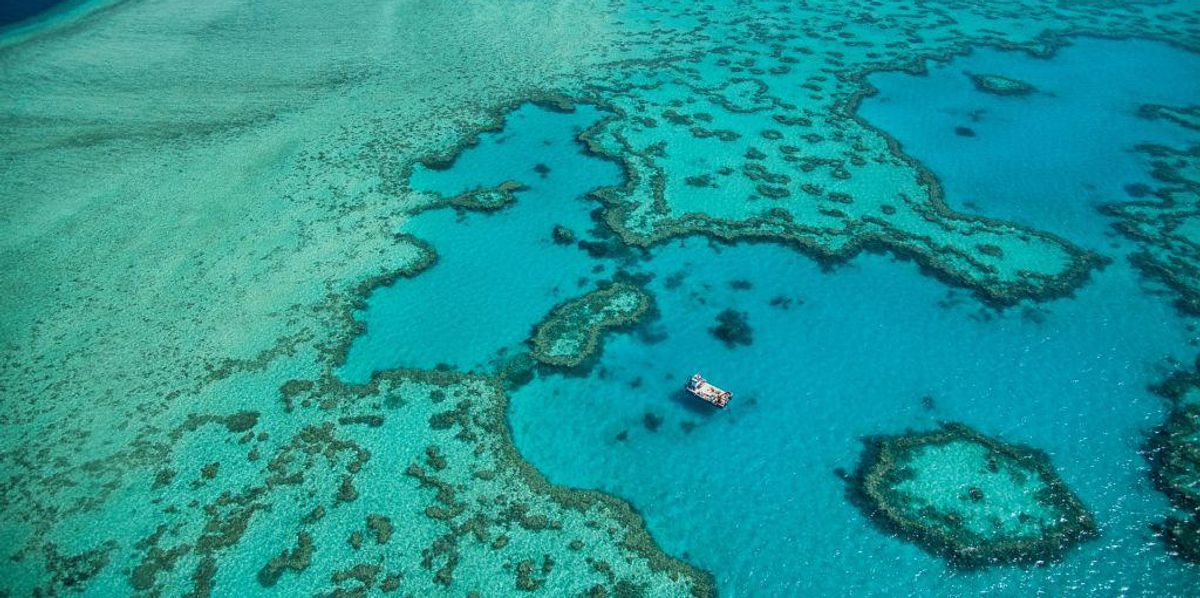Australia’s Great Barrier Reef is flourishing despite previous reports sounding the alarm about the looming extinction of Australia’s natural wonder.
According to new findings reported on Thursday, a majority of the thriving Great Barrier Reef boasted the highest coral cover ever recorded. Two-thirds of the Great Barrier Reef had the largest amount of coral cover in the 36 years that it has been monitored.
The northern and central areas of the Great Barrier reef experienced growth, according to surveys conducted between August 2021 and May 2022 by the Australian Institute of Marine Sciences. The northern section soared from an all-time low of 13% coral coverage in 2017 to 36% in the most recent report. The central region jumped from a low of 12% in 2019 to 33% coverage in the latest AIMS annual report.
The coral coverage in the southern section fell by 4% – from 38% in the previous year to 34% in the latest report. The environmental experts believe the decrease stems from outbreaks of crown-of-thorns starfish.
AIMS considers a hard coral cover of more than 30% as “high value.”
AIMS CEO Paul Hardisty downplayed the positive news in a statement: “This shows how vulnerable the Reef is to the continued acute and severe disturbances that are occurring more often and are longer-lasting.”
“Every summer the Reef is at risk of temperature stress, bleaching and potentially mortality and our understanding of how the ecosystem responds to that is still developing,” Hardisty said.
“What we’re seeing is that the Great Barrier Reef is still a resilient system. It still maintains that ability to recover from disturbances,” AIMS Long-Term Monitoring Program leader Mike Emslie told Reuters, but he cautioned, “But the worrying thing is that the frequency of these disturbance events are increasing, particularly the mass coral bleaching events.”
For nearly 40 years, AIMS has examined the status of the Great Barrier Reef through its Long-Term Monitoring Program – which claims to have conducted the “most comprehensive and extensive record of coral status on any reef ecosystem in the world.” Each year, marine scientists from the Australian Institute of Marine Sciences survey between 80 and 130 reefs on the GBR.
Despite the promising report from the respected environmental organization, it wasn’t long ago that there were experts claiming that the Great Barrier Reef could soon die off completely.
The New York Times has published several articles foretelling doomsday scenarios for the Great Barrier Reef.
In December 2016, the Times ran an article titled: “The Great and Dying Barrier Reef.”
In March 2017, the outlet said, “Large Sections of Australia’s Great Reef Are Now Dead.”
In April 2018, the New York Times published an article titled: “Damage to Great Barrier Reef From Global Warming Is Irreversible, Scientists Say.”
The Washington Post also claimed that climate change was killing the Great Barrier Reef, and it “might never recover.”
In April 2019, the paper declared, “The Great Barrier Reef is being battered by climate change, it might only get worse.”
In October 2020, the Washington Post published an article titled: “Half of the Great Barrier Reef’s coral is gone. It might never recover.”
Just in March, the Washington Post reported, “Climate warming deals yet another blow to the Great Barrier.”
PBS News Hour featured a segment in March 2017 titled: “Climate change is killing the Great Barrier Reef.”
In November 2020, Business Insider asserted, “Experts say the time to take action is now, and if nothing is done, this world wonder as we know it today could be gone by 2050.”
The website Outside wrote an obituary for the Great Barrier Reef in October 2016.
In March, UNESCO considered labeling the Reef as “in danger” after the Great Barrier Reef Marine Park Authority reported “low to moderate bleaching” of the natural wonder. UNESCO confirmed that two scientists would examine the Reef for 10 days, according to The Guardian.
A World Heritage Committee meeting on determining the status of the Great Barrier Reef was scheduled to happen in June in Russia, but it was postponed after the invasion of Ukraine.
The Great Barrier Reef was designated as a UNESCO World Heritage site in 1981.
Continued coral recovery leads to 36-year highs across two-thirds of the Great Barrier Reef
www.youtube.com
